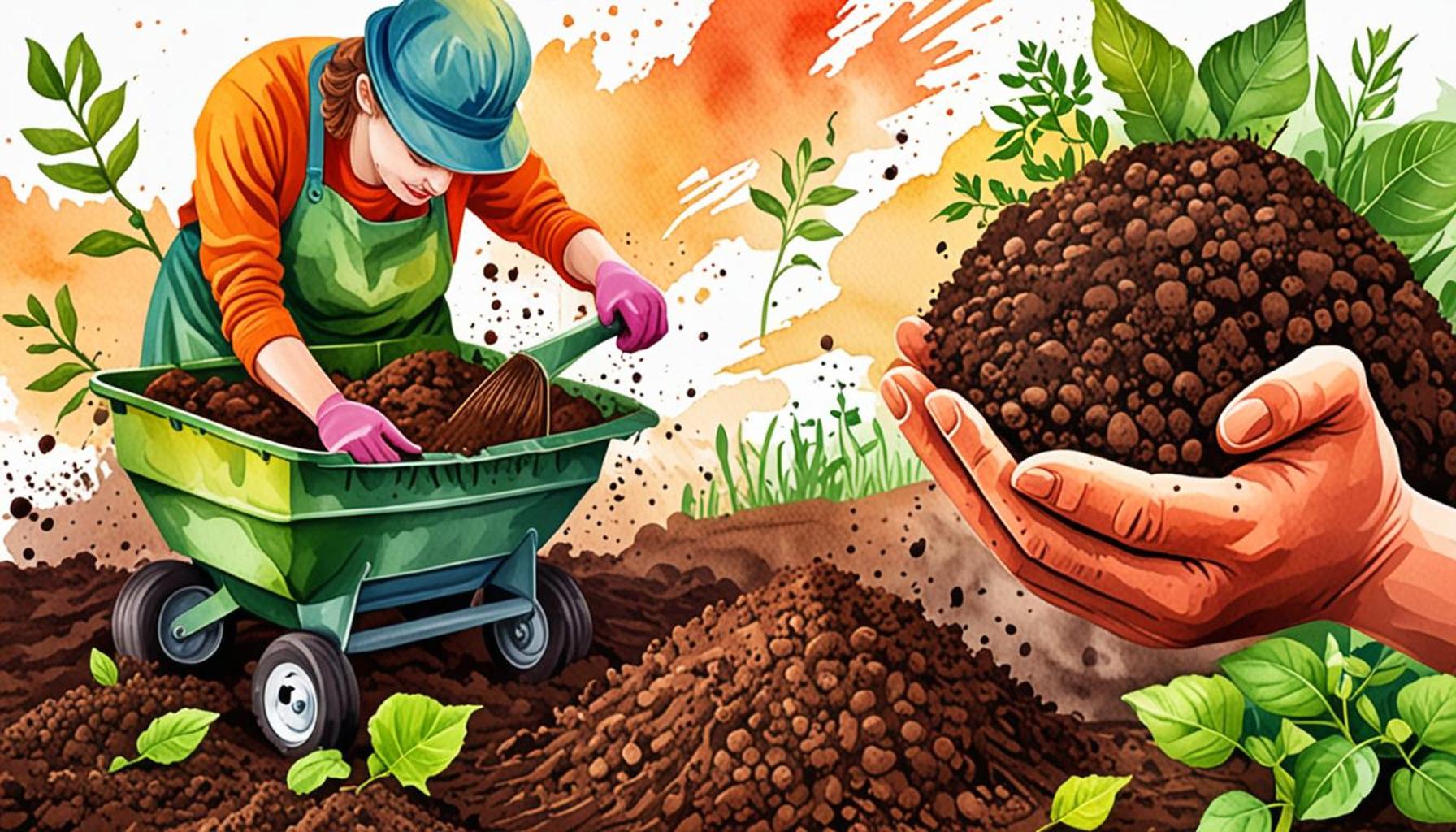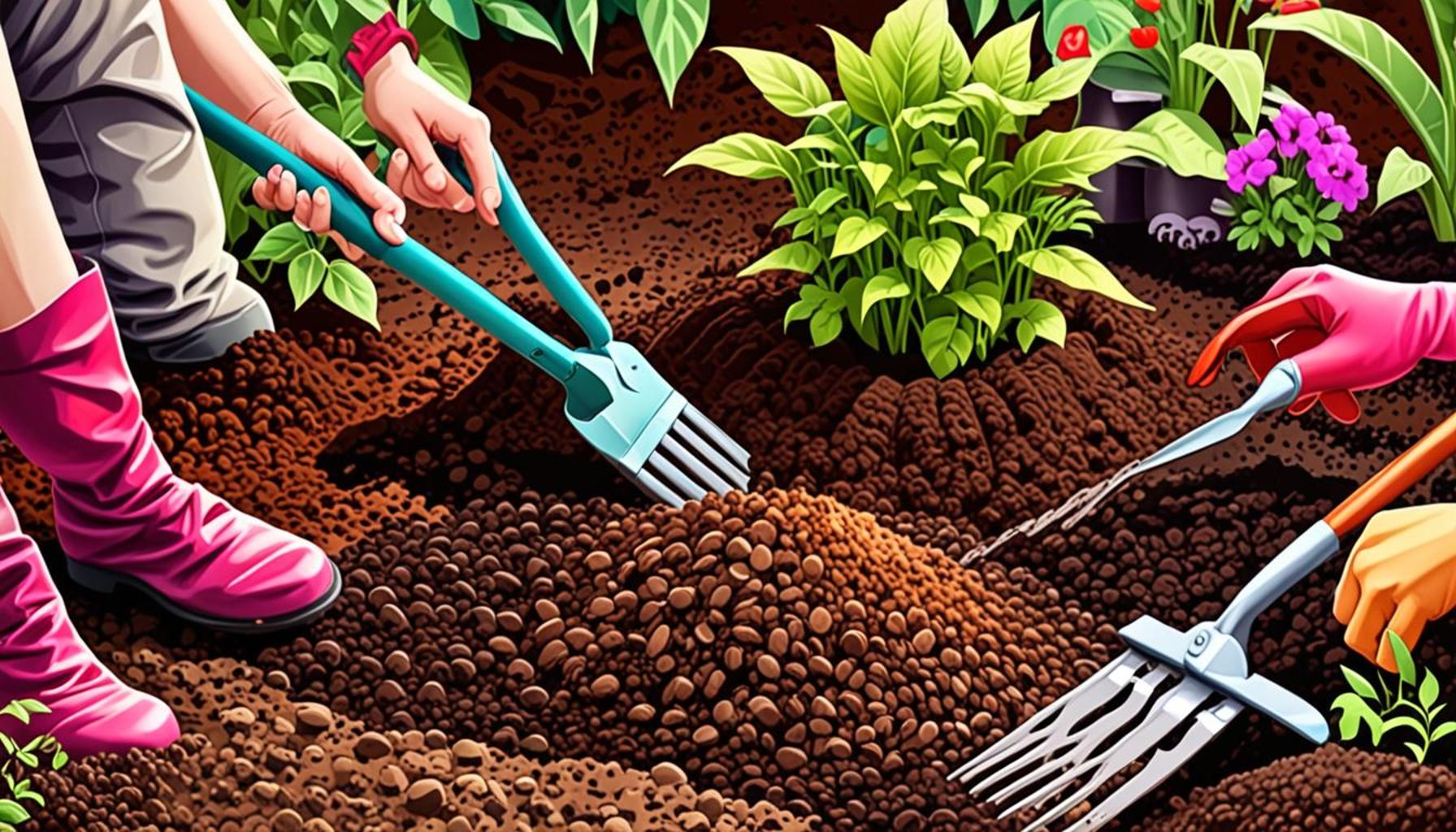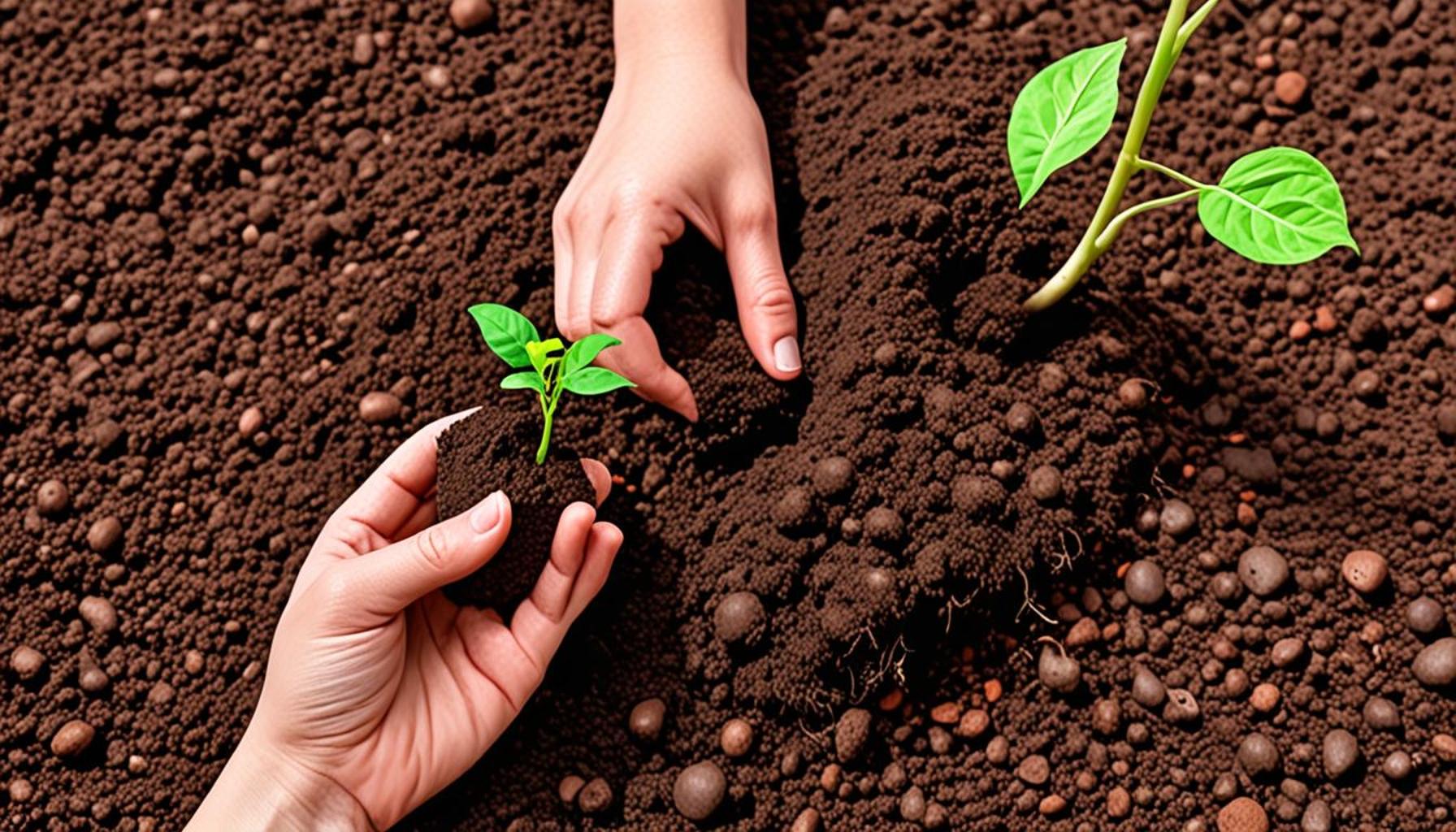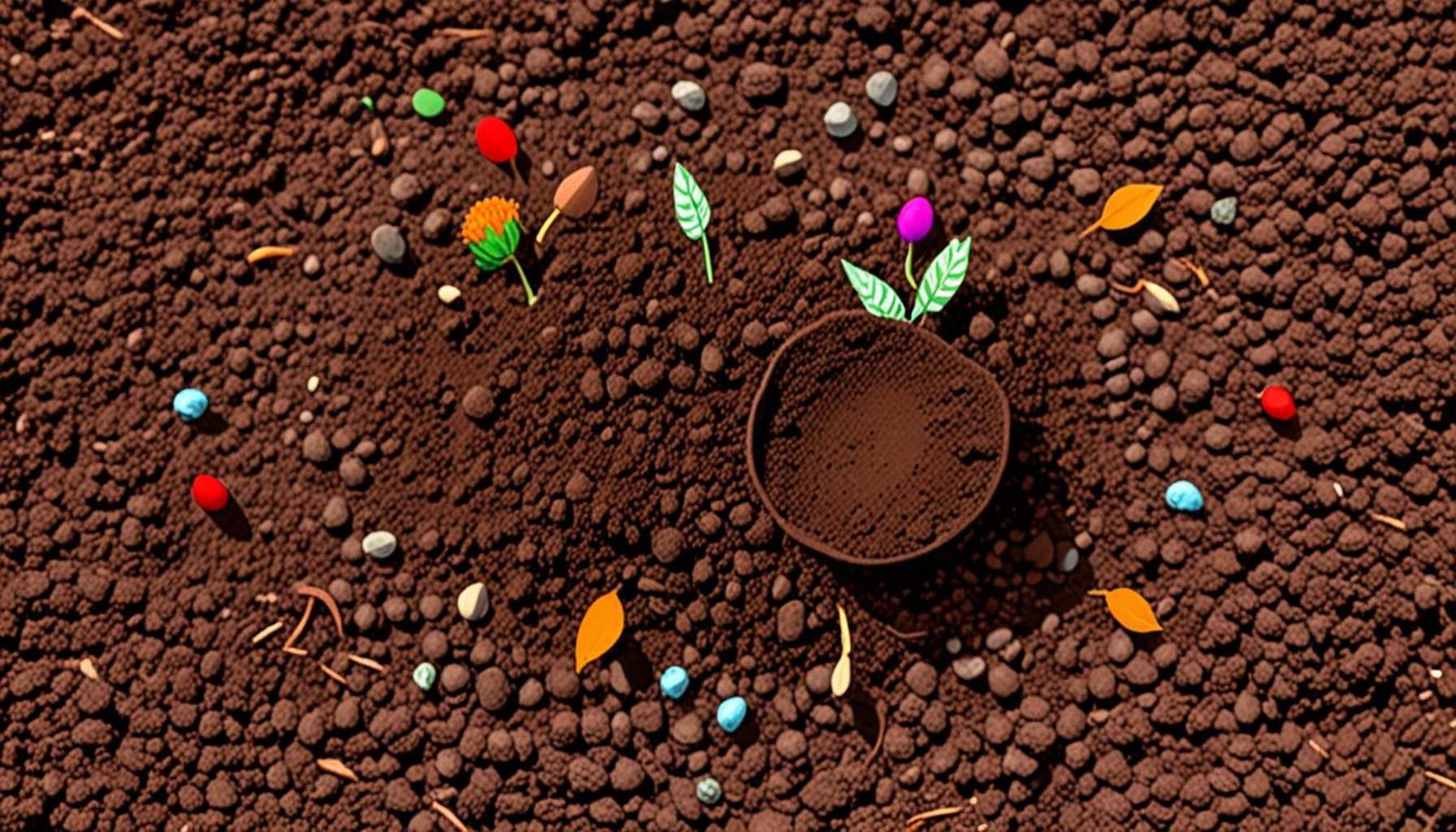Natural Soil Preparation Methods: Composting and Use of Organic Fertilizers

Unveiling the Secrets of Soil Health
Healthy soil is the foundation of thriving gardens and productive farms, sustaining not just plants but entire ecosystems. As awareness grows about the potential harm of synthetic chemicals, more individuals and communities are turning to natural soil preparation methods to nourish their plants and promote sustainability. By fostering the health of soil, we can make significant strides towards cultivating a healthier environment.
This article delves into the powerful practices of composting and the use of organic fertilizers, unveiling not just their benefits but also practical tips for implementation. Far from being mere trends, these methods are rooted in tradition and science, offering numerous advantages that cater to both experienced gardeners and newcomers alike.
Why Choose Natural Soil Preparation?
- Environmental Safety: Natural methods minimize pollution and protect water sources. For instance, traditional chemical fertilizers can lead to runoff, contaminating streams and rivers. By opting for natural alternatives, we help to safeguard our water supply and local ecosystems.
- Nutrient-Rich Soil: Incorporating organic materials such as compost and well-rotted manure improves soil structure and boosts nutrient levels. Studies show that organic matter can improve soil’s ability to hold water, essential during dry spells, which is particularly important in regions like the Midwest where drought conditions can occur.
- Increased Microbial Activity: Healthy soil teems with beneficial organisms that support plant growth. These microorganisms play vital roles in breaking down organic matter and cycling nutrients. An active microbial community not only bolsters plant health but also enhances pest resistance, creating a more resilient garden ecosystem.
Understanding the dynamics of soil health can empower you to make informed choices. For instance, creating a compost pile at home from kitchen scraps and yard waste is not only a sustainable practice but also an inexpensive way to enrich your garden’s soil. Composting can reduce landfill waste while providing essential nutrients to your plants, creating a closed-loop system that many gardening enthusiasts champion. Similarly, utilizing organic fertilizers—such as fish emulsion or bone meal—can offer a slow-release nutrient source that nurtures plants over time versus the quick release typically found in chemical fertilizers.
By adopting these natural practices, you can transform your garden into an ecosystem that thrives naturally while promoting biodiversity and sustainability. Whether you’re growing tomatoes in your backyard or managing a larger agricultural venture, cultivating healthy soil should be a central goal. Let’s dig deeper into how these methods can enhance your soil’s vitality and contribute to a more sustainable future.
LEARN MORE: Click here for valuable tips
The Art and Science of Composting
Composting is more than just a trend; it is a time-tested method that transforms everyday organic waste into a powerful soil enhancer. By decomposing kitchen scraps, yard debris, and other organic materials, composting creates nutrient-rich humus that can enrich any garden soil. In fact, composting not only reduces landfill waste but also allows gardeners to harness nature’s recycling system.
At its core, composting involves breaking down organic material through aerobic decomposition, a process facilitated by microorganisms, worms, and insects. The right balance of carbon-rich “browns” (like dried leaves and straw) and nitrogen-rich “greens” (such as vegetable scraps and grass clippings) creates a thriving environment for these decomposers. Here are some key benefits of adopting composting as part of your natural soil preparation methods:
- Enhances Soil Structure: Compost improves aeration, drainage, and water retention, essential for both sandy and clay soils.
- Boosts Nutrient Availability: It provides essential nutrients, such as nitrogen, phosphorus, and potassium, in a slow-release manner that feeds plants over time.
- Encourages Beneficial Microbial Activity: The microorganisms found in compost promote a healthy soil ecosystem that can help suppress plant diseases and pests.
- Reduces Soil Erosion: A layer of compost on the soil surface can protect against erosion caused by wind and water.
- Improves Plant Growth: Research indicates that plants grown in compost-enriched soil tend to be more vigorous and produce higher yields.
Implementing Composting in Your Garden
Starting a compost pile doesn’t require extensive resources; it can be as simple as designating a corner of your yard for organic waste. To create an effective compost system, one can follow these essential steps:
- Choose a Location: Select a spot that is easily accessible but away from direct sunlight to maintain moisture levels.
- Create Layers: Alternate layers of “greens” and “browns,” ensuring to keep the pile aerated by turning it every few weeks.
- Add Water: Maintain moisture similar to a damp sponge to facilitate the decomposition process.
- Monitor the Temperature: Compost piles generate heat as materials break down. A well-maintained pile can reach internal temperatures of up to 160°F, helping to speed up decomposition.
Although creating compost may seem daunting initially, its rewards are immense—enhanced soil vitality and reduced environmental impact. With compost, gardeners can ensure that their plants receive the essential nutrients while closing the loop on organic waste.
Organic Fertilizers: A Sustainable Alternative
In addition to composting, using organic fertilizers represents another vital natural soil preparation method. Unlike synthetic fertilizers, which may leach into waterways and harm ecosystems, organic fertilizers are derived from natural sources, such as animal manure, bone meal, and plant materials. They deliver nutrients to plants in a sustainable manner that also promotes soil health.
Organic fertilizers generally come with a bonus—they improve overall soil structure and microbial activity, contributing to long-term soil fertility. Here is a list of some popular organic fertilizers and their benefits:
- Fish Emulsion: Rich in nitrogen and trace minerals, fish emulsion promotes healthy foliage growth.
- Bone Meal: A great source of phosphorus, it supports root development and flower production.
- Composted Manure: Nutrient-rich and full of beneficial microbes, it enhances both soil fertility and structure.
- Kelp Meal: This offers a variety of nutrients and growth hormones that stimulate plant growth.
Using organic fertilizers not only nourishes plants effectively but also ensures a sustainable approach that can improve the overall health of the soil. By combining these practices with composting, gardeners and farmers alike can cultivate balanced, productive ecosystems that thrive on natural resources.
When it comes to enhancing soil health, exploring natural soil preparation methods is essential for sustainable agriculture. Composting, an age-old practice, not only recycles organic waste but also enriches the soil, boosting its nutritional profile. By decomposing kitchen scraps, yard waste, and other organic materials, compost creates a rich humus that improves soil structure and water retention, making it an invaluable asset for gardeners and farmers alike.
Additionally, the use of organic fertilizers is gaining traction as a vital component in enhancing soil fertility. Unlike their synthetic counterparts, organic fertilizers such as manure, bone meal, and fish emulsion release nutrients slowly, reducing the risk of nutrient run-off and promoting long-term soil health. These fertilizers enrich the microbial ecosystem within the soil, which plays a crucial role in nutrient cycling and improving plant health.
The synergy between composting and organic fertilizers not only promotes a robust soil ecosystem but also contributes to biodiversity. This two-pronged approach to natural soil preparation dramatically increases crop yields while minimizing environmental footprints. Furthermore, adopting these practices can lead to healthier plants that are more resistant to pests and diseases, creating a more resilient agricultural system.
| Category | Description |
|---|---|
| Composting | Transforms organic waste into nutrient-rich organic matter. |
| Organic Fertilizers | Supply nutrients gradually, improving soil ecosystems and plant health. |
By understanding and implementing these beneficial practices, farmers and gardeners can cultivate richer soils that support diverse ecosystems while sustaining food production. With a focus on natural preparation methods, there is an opportunity to not only nourish the earth but also foster a sustainable future for generations.
DISCOVER MORE: Click here for effective pest control tips
Nurturing Soil Health with Organic Techniques
The importance of organic fertilizers in sustainable gardening cannot be understated, as they play a crucial role in enhancing soil health and bolstering plant resilience. These fertilizers are rich in micronutrients and organic matter, both of which are integral for fostering a thriving ecosystem in your soil. Unlike chemical counterparts that may disrupt the delicate balance of soil organisms, organic fertilizers work in harmony with nature, providing a slow-release nutrient source that optimizes plant uptake and minimizes environmental impact.
Understanding Nutrient Release in Organic Fertilizers
One of the defining characteristics of organic fertilizers is their nutrient release pattern. Nutrients from organic sources are made available to plants as soil microorganisms break them down, a process that aligns with plant growth cycles. For instance, composted manure not only supplies nitrogen but also gradually improves soil structure over time, contributing to improved aeration and moisture retention. This slow nutrient availability means that plants are less susceptible to nutrient burn, a common issue with synthetic fertilizers.
Another popular organic option is worm castings, a product of vermiculture that provides a rich array of nutrients in an easily digestible form for plants. Worm castings contain beneficial microbes and enzymes that can improve nutrient availability and boost disease resistance in crops. Using worm castings can thus create a fertile environment that supports healthy plant growth while taking advantage of natural decomposition processes.
Exploring Eco-Friendly Organic Fertilizer Options
When considering organic fertilizer options, there is an extensive range available to fit different gardening needs. Green manure, for instance, refers to cover crops that are grown specifically to be tilled into the soil to enhance its nutrient content. Varieties such as clover and vetch can fix nitrogen in the soil, promoting a healthier growing environment.
- Wood Ash: This byproduct of burning wood is an excellent source of potassium and lime, making it particularly beneficial for fruiting plants and tomatoes.
- Alfalfa Meal: Known for its rich nitrogen content, this organic fertilizer also contains vitamins and growth hormones, encouraging quicker plant maturation.
- Bone Meal: Rich in phosphorus, it enhances root establishment and flowering. Its moderate delivery makes it ideal for perennial plants and flowering gardens.
- Blood Meal: As a high-nitrogen resource, blood meal can give a quick boost to gardens in need of immediate nutrient replenishment.
Utilizing these organic fertilizers helps meet the nutritional needs of plants while simultaneously enriching the soil. Over time, these practices contribute to a fertile soil environment that invites an array of beneficial organisms, from earthworms to fungi, which are essential for a healthy garden ecosystem.
Integrating Practices for Maximum Impact
For gardeners aiming to maximize the potential of their soil, integrating composting and organic fertilizers can yield impressive results. By combining these methods, one not only enhances the immediate growth of plants but also lays the foundation for long-term soil health. The symbiotic relationship between compost and organic fertilizers enables a continuous cycle of nutrient replenishment, making it possible to cultivate resilient and robust crops year after year.
As we explore these natural soil preparation methods, it becomes clear that making informed choices about soil health will ultimately lead to more sustainable gardening practices and a thriving gardening environment. With dedicated effort, any gardener can transform their soil into a fertile landscape abundant in life, nutrients, and vitality.
DISCOVER MORE: Click here to learn why native plants are essential
Conclusion: Embracing Natural Soil Preparation
Incorporating natural soil preparation methods such as composting and the use of organic fertilizers is not only a fundamental aspect of sustainable gardening but also a powerful approach to enhancing soil health. These eco-friendly practices are vital for building a thriving ecosystem, as they improve nutrient availability, promote microbial diversity, and create a robust foundation for plant growth.
The gradual nutrient release from organic fertilizers aligns effectively with the natural growth cycles of plants, minimizing waste and reducing the risks associated with synthetic fertilizers. As gardeners implement diverse organic options—ranging from worm castings to green manure—they cultivate healthier plants that are more resilient to pests and diseases. This not only leads to improved yields but also contributes to a sustainable gardening ethos that respects the environment.
Moreover, by integrating composting with these organic fertilizers, gardeners can create a closed-loop system that continuously replenishes soil nutrients. This interconnected relationship ultimately transforms soil into a vibrant habitat full of life, enriching the garden for years to come. As we embrace these natural methods, we encourage the next generation of gardeners to prioritize sustainable practices that honor the intricate balance of our ecosystems.
In conclusion, the transition to natural soil preparation methods is a rewarding journey that fosters not just plant growth, but a deep connection with the earth. By choosing to nourish the soil organically, we take a significant step towards ensuring that our gardens—and ultimately our planet—thrive.


